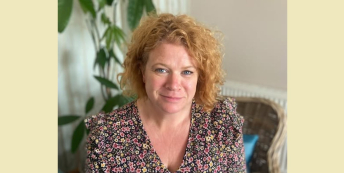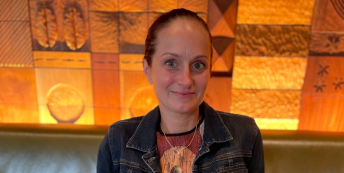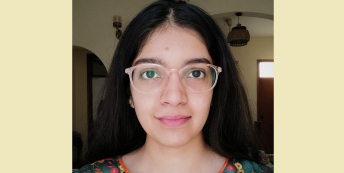“I thought 'What the hell am I doing here?'”

Newly Updated
What work were you doing previously?
I was working as an environmental engineering consultant.
I mainly worked on environmental compliance (for manufacturing, municipalities, corporations), site plans (for new construction), and some environmental remediation plans (for contaminated sites). My day-to-day involved a lot of computer aided design (CAD) or geographic information system (GIS), and report writing.
What are you doing now?
Currently, I am a data scientist at BMW.
I work with complex problems crossing many different groups and areas of the business. I work mainly in Python and develop machine learning (ML) or Artificial Intelligence (AI) models.
This is a unique role, as I am part of the IT Innovations and Research group. We have the benefit of working on cutting-edge problems, and bringing new ideas and technology into the BMW group.
I also offer online coaching services to help people create successful graduate school applications and secure funding at top universities.
How did you feel in your work before you decided to make the change?
I felt a little bored in my role as an environmental engineer.
There wasn't a ton of room for problem solving. Many things were simply reporting the facts.
I actually liked working on remediation plans, and doing some investigation. But, I found the CAD work tedious. I didn't enjoy staring at a screen making sure one line connected to another line, and editing colors and line weights.
Why did you change?
I kept having the feeling that I wanted to contribute more through my career, and I couldn’t see a path forward at this company.
I also didn’t want to be my boss. Not that I could be my boss, since it was a privately owned company (and I wasn’t going to be offered partnership).
I longed to actually make a change, and not just report the facts.
I didn’t want to stay in the same engineering role, but I loved problem solving. I thought I could have more of an impact, and a more senior role, if I got my PhD. I wanted to be at the table making decisions, not doing the grunt work to report facts.
Additionally, the pay at this job was pretty low. As an engineer, I was making 30% less than other engineers in different cities. This firm was located in a trendy place where “everyone wants to live”. So, the firm took advantage of this fact and actually paid less than in other big cities. But, the cost of living was just as high. It was not ideal.
When was the moment you decided to make the change?
When I was sitting in my apartment listening to students down the street shoot off fireworks at 11 p.m.
I thought "What the hell am I doing here?"
The apartment was pretty low rent, but it’s what I could afford. I was an engineer, living like a bartender. I decided I wasn't going to scrape by. I would push myself and go after what I wanted.
How did you choose your new career?
I’ve always loved problem solving, and wrestling with new challenges. And I'm passionate about reducing pollution and preserving our resources.
Therefore, I started researching roles where people had leadership roles centered around sustainability and environmental resource management. I soon discovered that all the roles I liked required a PhD.
So, I decided to pursue my PhD in environmental engineering. I figured I could become a professor, or work in government research once I graduated.
About half-way through my PhD, I realised academia would not fit my lifestyle. I had a husband, and also a brand new baby. My husband had a career, and he did not want to bounce around the different academic institutions while I pursued tenure.
Therefore, I changed tack. As a graduate student I'd started learning different programming languages, and creating machine learning models to solve my research questions. I loved this blend of science and technical coding. I also began hearing about the hot field of 'data science', which totally blew me away. I had no idea this was a career option! And a highly paid one!
I decided this was the perfect way for me to use my analytical nature, and solve real-world problems for large organisations. I was all in.
After learning so much about the graduate study application and funding process, I also wanted to use this knowledge to help others achieve their goals, which led me to setting up my coaching services.
Are you happy with the change?
Yes, I'm very happy in my role as a data scientist.
I get to work on new and challenging problems constantly. I also get to be surrounded by smart PhDs who also love tackling problems.
Because this role interfaces with so many different groups, I kind of feel like a consultant within the organisation. It’s really fun to put my thinking hat on and solve problems for different groups.
With my coaching, I love learning about each client's aspirations and helping them craft their winning applications. I strive to demystify the process so more people are able to navigate graduate school successfully. It truly is a wonderful experience and I wouldn't be able to do this had I not made my career change.
I am far happier having an impact now, rather than waiting twenty years to possibly have an impact in academia.
What do you miss and what don't you miss?
From my environmental consulting days, I miss the really cool and quirky people I worked with.
From my academic days, I miss the theoretical questions and amount of time you could devote to one problem. Now, things move at a faster pace!
I don’t miss being bored or wondering if I’m having an impact.
How did you go about making the shift?
In terms of my PhD, I basically sat down at my computer every day after work and researched programs that fit my criteria.
I then methodically contacted professors to learn more about their work. My hard work and research paid off: I secured three offers for full funding at top universities! This was really important, as I didn’t want to take on more debt for a graduate degree.
Then later when I pivoted towards data science, I started researching roles in the sector, and secured an internship at a local tech start-up. It was an awesome experience and I got to see first-hand how data science worked in the corporate world.
After I graduated with my PhD, I needed help breaking into the tech industry. I decided to complete an intense seven-week bootcamp for data scientists from Insight Data Science.
What didn't go well? What wrong turns did you take?
As I was getting ready to graduate, we knew we wanted to move closer to my husband’s hometown.
We both ended our jobs, and moved without any guarantees. What a risk! This was extremely stressful, to say the least. Add in a one year old and you have a perfect recipe for two adults to implode.
My husband got a job quickly, and that sort of locked us into a location. I wasn't thrilled. I was hoping for a different city with more tech jobs for me. Fighting this feeling of being trapped wasn't always easy.
However, I hate the feeling of helplessness, so I quickly decided to put my head down and get to work.
How did you handle your finances to make your shift possible?
Leaving my engineering role wasn't that difficult, as my grad student stipend offset most of that salary. We also had my husband’s income to help us during this time.
I’ve always been a saver, and I just watched what I spent money on. I think it also helps to note we didn’t have large obligations (like a mortgage) at this time.
When I finished my PhD, and prior to landing my data scientist role, I was a bit stressed. How could I justify childcare (a huge expense) to focus on finding my job? We decided to make the investment in part-time childcare, and it gave me the necessary time to find my job.
What was the most difficult thing about changing?
Moving to a new city and trying to find a job with no network was hard.
Luckily, data science is such a marketable skill finding a role was not too difficult.
I did have to job hunt and interview while pregnant. That put some stress on me. While legally I knew I couldn't be discriminated against, I still felt self-conscious. It all worked out, and I got hired at a fantastic company, so it is possible to job hunt while pregnant!
Being in IT with a non-IT background is sometimes challenging. I would say 90% of the time I’m perfectly fine, but some technical aspects I miss. However, I’m learning quickly on the job and soaking up as much information as possible.
What help did you get? 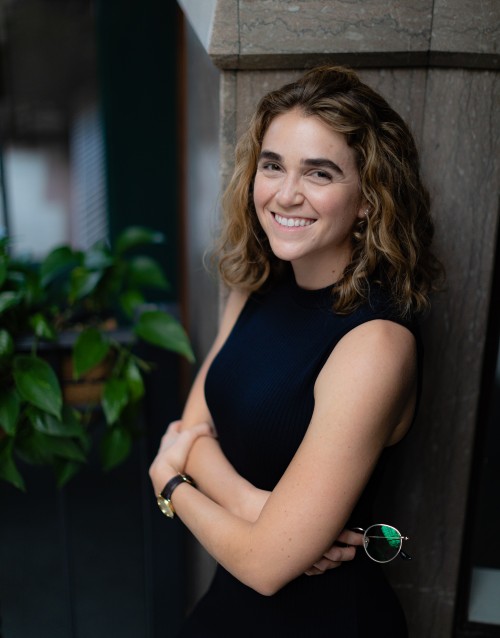
The bootcamp with Insight Data Science was a phenomenal experience.
I got to work with an amazing cohort of other PhDs trying to transition to data science, and receive career coaching guidance. I would highly recommend this or other bootcamps for people looking to transition to data science or data engineering. Building your network is also a priceless benefit of these programmes.
Also, by an extremely lucky break (being in the right place at the right time) my husband passed my CV on to my (now) boss’s boss. He was impressed and we were able to set up an interview.
What resources would you recommend to others?
I would 100% recommend bootcamps with built-in networks or career placement.
Insight Data Science works like a headhunter and partners with big corporations (Facebook, Apple, etc.) to place fellows. It's extremely valuable, and a great way to make connections.
What have you learnt in the process?
That people don’t know as much as you think they do.
That you’re probably just as capable of doing the job you want, you just don’t think you are.
What would you advise others to do in the same situation?
If you’ve left your old role and moved to a brand new city, I’d say go for it.
Waiting around for something to happen is only going to leave you more stressed than actually jumping in.
We caught up with Natalie recently to see how her shift was working out, roughly a year on. Here's what she's been up to, and the biggest lessons she's learned.
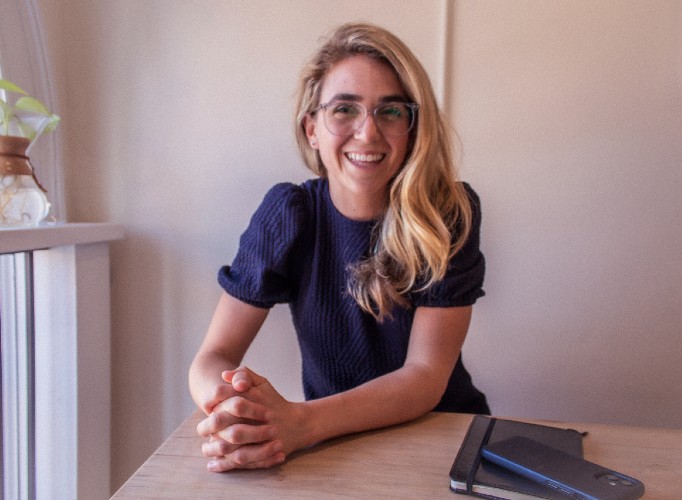
What's changed for you in your career since we first published your story?
I recently switched roles from a Fortune 500 company to a smaller start-up.
I'm now a senior data scientist, and made this change as I wanted more exposure to more parts of the business and technical work.
I got what I asked for! It's a very fast-paced environment and I'm learning a ton.
I'm also continuing to grow my grad school consulting business (For The Love Of Grad), and have found some amazing results with initial clients. I plan to keep growing this business and learning more about the online service space.
How do you feel about your work now?
I still very much love data science.
I'm also becoming aware that I can't do everything. I'm glad to get exposed to new technologies and ways of doing things, but I'm also aware that I appreciate working with people and will likely take a more project-management- / people-management-focused role in the future.
What challenges have you come up against since making your shift, and how exactly have you dealt with them?
Learning new technology constantly requires extra brain space.
I do my best to keep up, but don't stress about not knowing everything!
How is the financial side of things panning out, and is this what you'd expected?
I'm continuing to make a great salary, and find this is what I expected.
What have you learned, since making your shift?
I've learned that you never stop learning, and that there are great people everywhere.
Is there anything else you'd like to share?
You have a lot of options with data science, so you really can push your career in any direction you like!
To find out more about Natalie's graduate application support services, visit fortheloveofgrad.com.
What lessons could you take from Natalie's story to use in your own career change? Let us know in the comments below.

